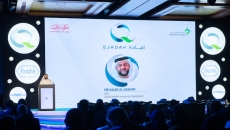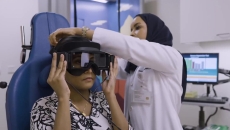Ahmed El Sherif
This afternoon session of day one of the 2022 HIMSS Middle East Health Conference & Exhibition will explore how cross-collaboration can improve various aspects in digital healthcare.
Through the use of technology, the emirate is reportedly keen on shifting its healthcare sector from a volume-based model to one that is more value-driven in the coming years.
The forecast for the next 24 months was revealed at the debut edition of the Precision Medicine Exhibition and Summit, and EMERGE GHI Investment Forum held in Dubai.
The brand – a leading healthcare provider in the GCC region – will work alongside Dubai’s Eurohealth Systems during this seven-year agreement.
The “next generation” augmented intelligence solution is reportedly being delivered to over 250 million patients in the Middle East and North Africa, and Asia territories.
Used during the routine evaluation and balance rehabilitation of astronauts, the EquiTest is part of the Abu Dhabi hospital’s newly launched Balance Clinic.
News comes as the United Arab Emirates capital gets ready to introduce further restrictions of movement for non-vaccinated residents.
The platform aims to centralise various data in order to help improve disease prevention, as well as manage public health projects, and promote the involvement of communities in health programmes.
Royal Philips is helping the United Arab Emirates (UAE) fast-track its transformation of data-driven healthcare via a new partnership with one of the country’s leading telecommunications companies.
The aim of this type of platform is to ensure continuous and streamlined communication between a patient and their doctors while they receive treatment abroad.








